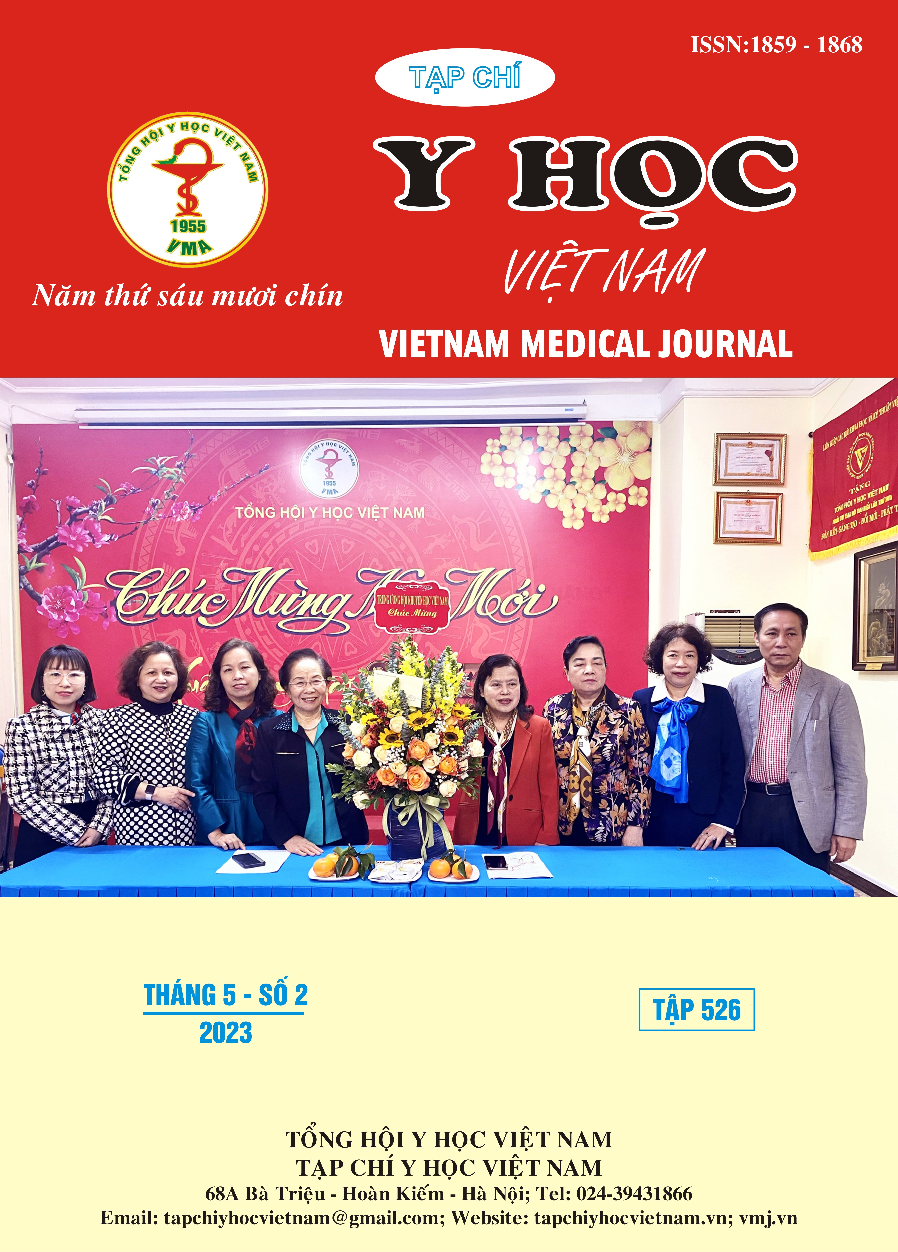COMPARE THE RESULTS OF NEOADJUVANT CHEMORADIATION BY 3D-CRT AND IMRT TECHNIQUES IN RECTAL CANCER STAGE T3-T4/N0
Main Article Content
Abstract
Objective: Compare the results of neoadjuvant chemoradiation by 3D-CRT and IMRT techniques in rectal cancer stage T3-T4/N0. Patients and methods: Retrospective cohort study. From June 2017 to June 2020, 85 patients diagnosed with middle or low rectal cancer stage T3-T4/N0 received neoadjuvant chemoradiation in K hospital. The patient was assessed to respond according to the “Resistance Evaluation Criteria for Solid Tumors” (RCIST), toxicity according to the anticancer drug toxicity classification criteria of the World Health Organization. World health organization common toxicity criteria. Results: The overall response rate of the 3D-CRT and IMRT groups was 84.7% and 95% respectively, the difference was not statistically significant with p = 0.652. 93.8% of patients after neoadjuvant chemoradiation underwent radical surgery in the 3D-CRT group, corresponding to the IMRT group 95%, the difference was not statistically significant with p=0.333 The side effects of radiation therapy on the disease patients tend to be lower when treated with IMRT. Conclusions: The IMRT radiotherapy technique applied in neoadjuvant for rectal cancer stage T3-4/N0 is an effective and safe radiotherapy technique that tends to reduce toxicity than the 3D-CRT method. However, the difference is not statistically significant.
Article Details
Keywords
rectal cancer, neoadjuvant chemoradiation, IMRT, 3D-CRT
References
2. Võ Văn Xuân, Nguyễn Đại Bình. Nghiên cứu áp dụng kỹ thuật xạ trị gia tốc tăng phân liều tiền phẫu kết hợp với phẫu thuật ung thư trực tràng. Tạp chí Ung thư học Việt Nam. 2012;số 2-2012, Hội phòng chống Ung thư Việt Nam:57-66.
3. Kim JC, Kim TW, Kim JH, et al. Preoperative concurrent radiotherapy with capecitabine before total mesorectal excision in locally advanced rectal cancer. Int J Radiat Oncol Biol Phys. 2005;63(2):346-353. doi:10.1016/j.ijrobp.2005.02.046
4. Jasper Nijkamp, Karin Haustermans, and Corrie A.M. Marijnen. What is the role of IMRT and IGRT in rectal cancer. s.l. In: Multidisciplinary Management of Rectal Cancer, Questions and Answers. Springer- Verlag Berlin Heidelberg; 2012:129-148.
5. Sk J, S P, Jm H, et al. Intensity-modulated radiation therapy for rectal carcinoma can reduce treatment breaks and emergency department visits. International journal of surgical oncology. doi:10.1155/2012/891067
6. Jabbour SK, Patel S, Herman JM, et al. Intensity-modulated radiation therapy for rectal carcinoma can reduce treatment breaks and emergency department visits. Int J Surg Oncol. 2012;2012:891067. doi:10.1155/2012/891067


